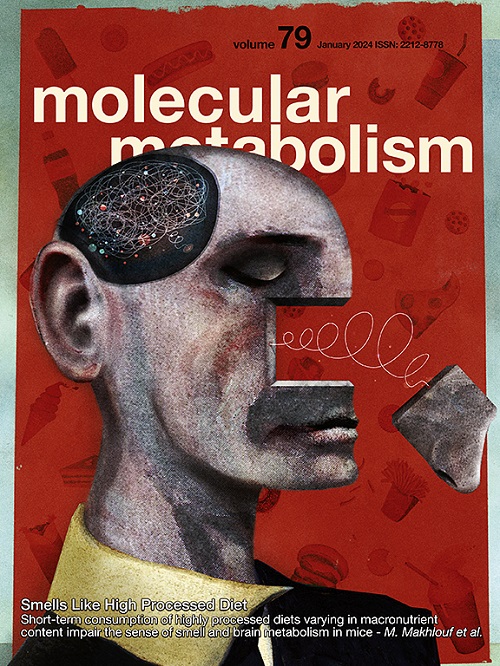CD73 promotes the immunoregulatory functions of hepatic Tregs through enzymatic and nonenzymatic pathways in MASLD development
IF 6.6
2区 医学
Q1 ENDOCRINOLOGY & METABOLISM
引用次数: 0
Abstract
Metabolic dysfunction-associated steatotic liver disease (MASLD) is a leading chronic liver disease characterized by chronic inflammation. Regulatory T cells (Tregs) highly express CD73 and play a critical role in modulating the immune response. However, the roles and mechanisms by which CD73 modulates Tregs in MASLD are still unknown. A choline-deficient high-fat diet (CDHFD) or methionine/choline-deficient diet (MCD) was used to establish a MASLD model. We found that CD73 expression was upregulated in Tregs via the FFA-mediated p38/GATA2 signaling pathway. Cd73 KO promoted MASLD progression, accompanied by decreased Treg viability and activity. Compared with Cd73 KO Tregs, adoptively transferred WT Tregs exhibited increased Treg activity and provided greater protection against hepatic inflammatory responses in MASLD. This immune protection is mediated by CD73 via both enzymatic and nonenzymatic pathways, degrading AMP into ADO to increase Treg function and block DR5-TRAIL-mediated cell death signaling. These findings suggest a potential immunotherapeutic approach for MASLD treatment and highlight its possible relevance for clinical application.

CD73通过酶和非酶途径促进肝脏Tregs在MASLD发展中的免疫调节功能。
代谢功能障碍相关脂肪变性肝病(MASLD)是一种以慢性炎症为特征的主要慢性肝病。调节性T细胞(Tregs)高度表达CD73并在调节免疫应答中发挥关键作用。然而,CD73在MASLD中调节Tregs的作用和机制仍然未知。采用缺乏胆碱的高脂饲粮(CDHFD)或蛋氨酸/胆碱缺乏饲粮(MCD)建立MASLD模型。我们发现CD73的表达在Tregs中通过fa介导的p38/GATA2信号通路上调。Cd73 KO促进MASLD进展,同时Treg活力和活性降低。与Cd73 KO Tregs相比,移植物WT Tregs表现出更高的Treg活性,并对MASLD的肝脏炎症反应提供更大的保护。这种免疫保护是由CD73通过酶和非酶途径介导的,将AMP降解为ADO以增加Treg功能并阻断dr5 - trail介导的细胞死亡信号。这些发现提示了一种潜在的MASLD免疫治疗方法,并强调了其可能与临床应用的相关性。
本文章由计算机程序翻译,如有差异,请以英文原文为准。
求助全文
约1分钟内获得全文
求助全文
来源期刊

Molecular Metabolism
ENDOCRINOLOGY & METABOLISM-
CiteScore
14.50
自引率
2.50%
发文量
219
审稿时长
43 days
期刊介绍:
Molecular Metabolism is a leading journal dedicated to sharing groundbreaking discoveries in the field of energy homeostasis and the underlying factors of metabolic disorders. These disorders include obesity, diabetes, cardiovascular disease, and cancer. Our journal focuses on publishing research driven by hypotheses and conducted to the highest standards, aiming to provide a mechanistic understanding of energy homeostasis-related behavior, physiology, and dysfunction.
We promote interdisciplinary science, covering a broad range of approaches from molecules to humans throughout the lifespan. Our goal is to contribute to transformative research in metabolism, which has the potential to revolutionize the field. By enabling progress in the prognosis, prevention, and ultimately the cure of metabolic disorders and their long-term complications, our journal seeks to better the future of health and well-being.
 求助内容:
求助内容: 应助结果提醒方式:
应助结果提醒方式:


